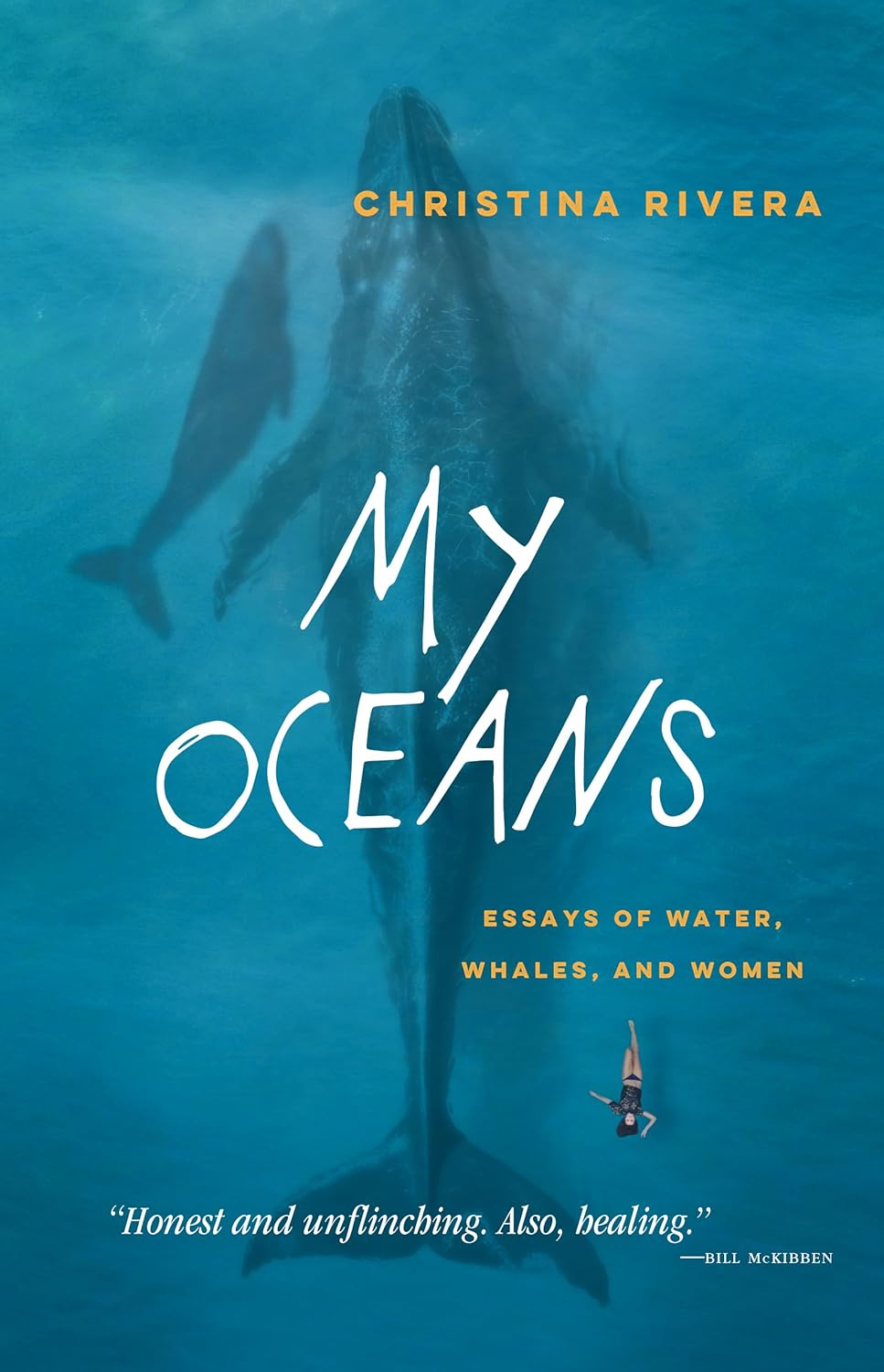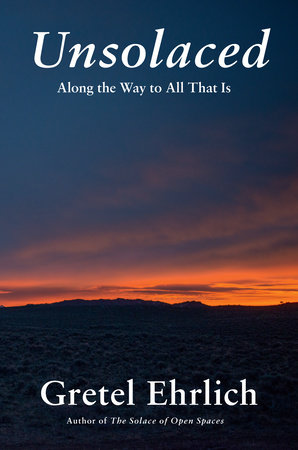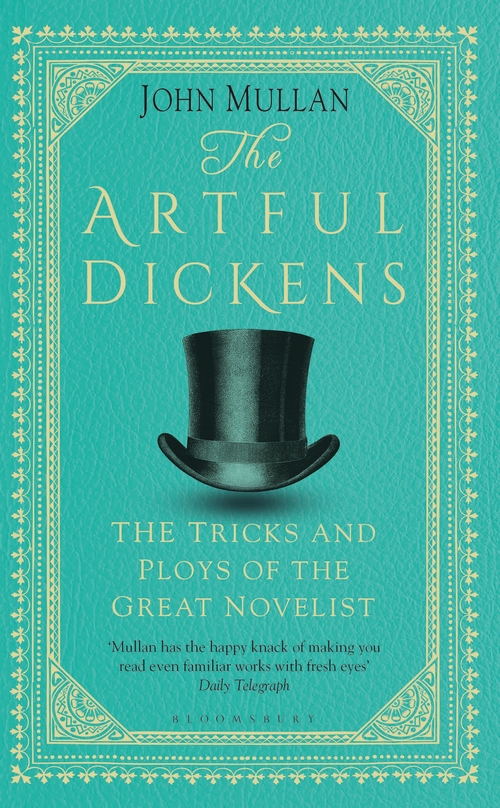My Oceans: Essays of Water, Whales, and Women
- By Christina Rivera
- Curbstone Books
- 272 pp.
- Reviewed by Patricia Schultheis
- April 11, 2025
To save the planet, we must save ourselves.

Christina Rivera’s My Oceans is a feminist manifesto as well as an environmental proclamation. By exploring such topics as miscarriage, the value of silence, the bonds between women, and the tragic plight of Corky, the star attraction at — and longtime captive orca of — SeaWorld, Rivera sounds the siren about impending environmental collapse. Perhaps nothing expresses her alarm as poignantly as her collection’s stark, three-word dedication: “to the endlings.”
An endling is the last known individual of a species or subspecies. To be an endling is to live the remainder of your life in soul-crushing loneliness. And once an endling dies, Earth (and we along with it) becomes more impoverished. In “The Endling,” Rivera recounts the struggle to save a newborn vaquita, a tiny porpoise that’s also Mexico’s national marine mammal. Despite the best of intentions, the fight is not successful — either for the individual vaquita or, it seems likely, the entire species. Writes Rivera:
“There might still be, at this moment, a few Vaquita left. Maybe a single mother and her calf. Maybe two sisters. Maybe one small pod swimming together. Or maybe one last Vaquita navigating gulf waters around the gill nets that drowned her grandparents, her brothers and sisters, maybe her calf, and definitely her ancestors.”
At times, Rivera’s unrelenting outrage is off-putting, but it’s merited. The numbers are staggering: When the last vaquita, the endling of her species, finally stops swimming, she’ll be just one of 150 species to disappear that day. Who’s next? Perhaps we are. And that’s Rivera’s point.
Motherhood reset the author’s mortality clock. In creating life, Rivera more fully comprehended death. The experience of groping for her children in the long seconds following a car crash prompted her to write the essay “Oncoming,” an exploration of helplessness that’s both a deeply personal confessional and a universal protest against environmental degradation:
“The planet is hurtling through lanes it shouldn’t, making nonsense of time. Breaking into a thousand pieces and eliciting a cement scream to which we barely raise our heads…”
A skilled scuba diver, Rivera finds inspiration in the sea and its creatures, from a newly hatched leatherback turtle to pods of migrating whales. “Water is the connecting thread of kinship between human bodies and water bodies and animal bodies,” she writes. “It’s not only the great equalizer, but the great integrator.” She regards the world through an “atmorelational” lens, focusing on the space or relationship between things.
One of the collection’s pluses is its introduction of eco-notional neologisms: terms such as the aforementioned “atmorelational,” as well as “shadowtime,” a time scale in which the near future will be drastically different from the present. But there’s also “epoquetude,” “kincara,” “neopangea,” and “surbrace.” Microsoft Word may flag these as misspellings, but that’s only because technology hasn’t caught up with the reality nor the richness of the natural world.
Unfortunately, Rivera’s “atmorelational” lens can become cloudy, making the connections she attempts to forge feel forced. For example, her effort to link the anatomy of seagulls with the physical abuse of women by men results in a strained and not especially illuminating pastiche. Sometimes, the horror should stand alone.
Some astute editorial culling would have resulted in a more appealing, more effective collection, one filled with less invective and more witness. While Rivera’s points are well taken, one wonders if they’ll inspire readers to action if all they do is harangue.
This is not to suggest that each offering reads as a screed, however. “How to Host a Pod of Women in Water” is an especially practical and fun guide for female renewal. “Pick a place with water,” Rivera instructs. “An ocean, a pool, a lake, a hot tub, a creek, a local hot spring, even a kiddy pool in the backyard…The oceans of whales and women are both vast; the distances they must travel to connect immense, so slow down in these first minutes of immersion.” Ahh, yes!
In the end, maybe Rivera is right: We are all drowning in an oceanic trash gyre of our own making, and the time has come to clean up our act. Once we do, we can relax as our bubbled breaths rise to the new, pristine surface we’ve created for ourselves.
Patricia Schultheis is the author of 40 published short stories, including the award-winning collection St. Bart’s Way. She is also the author of Baltimore’s Lexington Market, published in 2007, and A Balanced Life, published in 2018. She is the recipient of numerous awards and honors and is a member of the National Book Critics Circle. She lives in Baltimore.

